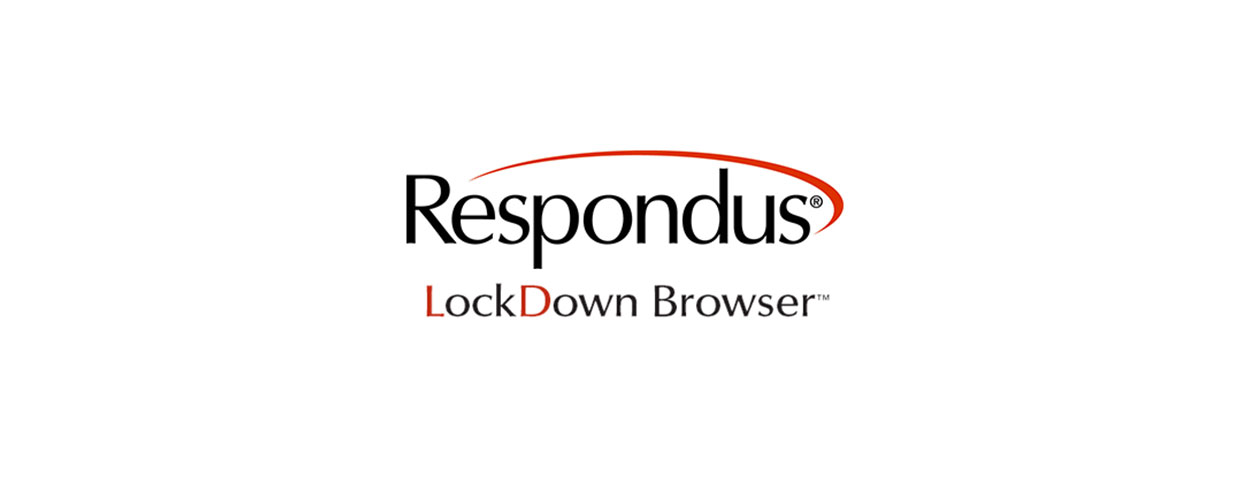Students concerned with level of access Respondus could have to their computer
Due to the COVID-19 pandemic, students have been forced to switch to an online learning atmosphere in which exams, labs, and midterms are conducted from home. Following the winter term’s exam period, a number of professors and faculty members raised concerns that academic fraud occurred since students with no supervision during their exams had unlimited access to class notes, tools, and software that could benefit them during their exams.
Dr. Timothy Lethbridge, the University of Ottawa’s vice dean of the faculty of engineering conducted a poll following the winter term exam period and found that students admitted to witnessing more academic fraud during this period.
“Their response was that the students themselves, both graduate and undergraduate did believe that academic fraud was up,” stated Lethbridge to the Fulcrum.
According to Lethbridge, 500 U of O students responded to the survey.
The rise in academic fraud has led a number of institutions to force students to download software for their computers that aim to curb cheating. As of now Concordia University in Montreal and Wilfrid Laurier University in Waterloo have chosen to use Respondus Lockdown, a software that requires a student to use a webcam in order to film themselves during an exam to discourage them from committing academic fraud.
Typically this software is used on computers on campus when students need to write an exam online. Now, this software will be adapted for use at home since students have to conduct their studies away from the U of O due to COVID-19.
The University of Ottawa recently gave the green light to its professors to use Respondus Lockdown browser and Respondus monitor and published instructions on how they can use the software to conduct an exam. As of now the use of Respondus has not been made mandatory by the University of Ottawa, however, professors do have the option to use the software if they wish to do so.
If a professor chooses to use Respondus, the software will force students to reveal their surroundings with their webcam, run facial recognition to prove that they are the correct student, have a camera pointed at them during the duration of the exam, show their student identification, and surrender the use of their computer until the exam has ended.
This means that during the exam students’ privacy, as well as access to their own personal computer is taken away from them.
Privacy and accessibility concerns
Respondus Lockdown will have Kernel level access to the student’s system once the software is installed. This means that Respondus Lockdown can access all restricted components of a student’s computer, in some cases, the software cannot be downloaded as it is flagged as ‘malware’ by some antivirus software.
Students have expressed concerns regarding this as they do not know whether or not their data remains private.
“We know far too often that this type of software can expose somebody to a hack,” stated Oliver Benning, a fourth-year Computer Science and Mathematics student at the University of Ottawa behind a recent change.org poll against the use of Respondus’ software. “Furthermore, it’s the collection of data we know that the software can require the student to have a constant stream of their face be recorded and saved and the insufficient data retention policies of the software”.
The petition has garnered over 1,500 signatures from individuals concerned about the use of Respondus software.
Respondus’ User Agreement states that “Respondus does not guarantee removal of all traces of any information or data (including recordings) from the Respondus monitor services after deletion”.This has made many students fearful of their privacy, since students will be filmed inside their homes.
“What I’m worried about is, this is a company that is based out of the US,” said Dr.Nour El-Kadri a professor in software engineering and computer science at the University of Ottawa. “It’s often the case that whatever information that they collect, that they could share it, it crosses the borders, and it’s going to be in the US. And the privacy laws in the US are less stringent than those in the Canadian jurisdictions. It would be less of a challenge if they used a similar system that is Canadian based.”
If a student tries to run Respondus on a virtual machine, it will block its use. This means a student would need to partition their drive and install Windows or purchase a new Apple or Windows computer. This raises accessibility concerns, as many students who deal with poverty, as well as those who may struggle with technology, could be left behind. For many students at the U of O, the cost to use such software may take a toll on their financial stability. For those who run Linux or ChromeOS, purchasing a $190 Windows 10 license or a new computer could have a negative effect on their finances.
Another concern, regarding accessibility, is how the software may react to students with attention disorders. In this video made by Respondus, it is shown how the camera version of the browser is used, and how the student will need to film themselves in order to write the exam.
The students who are on camera are filmed for the period of the exam and the recordings are saved by Respondus for a period of a year and can be kept for four more years at the institution’s request.
Dr. Lethbridge responded to this concern stating “that’s excessive. I mean, generally speaking, privacy rules say you should keep confidential information for the minimum amount of time that you really need it for”.
These recordings are also scanned by a computer program that will automatically detect if the student is being ‘suspicious’. In a video showing how to view the recordings, it is shown how the software reacts to various situations that could be classified as cheating.
This raises concerns for students who deal with attention disorders, and may need to move around the room, or cannot focus on the screen for an extended period of time.
With regards to the recordings, there are concerns with students who are fearful that their data could be breached. The Respondus Terms of Use state “By agreeing to these Terms, (the) Institution agrees to use Respondus Monitor at its own risk, and agrees that Respondus shall not be liable if a security breach occurs, if the site malfunctions, or if information is misused or mismanaged in any way to Institution’s detriment or to the detriment of a student, staff member or third party, whether by Respondus, (the) Institution, or an unauthorized third party.”
“This data collection, in principle, is a violation of people’s rights to privacy. It’s a recording in their personal dwelling that they shouldn’t have,” said Benning.
For many students, software having access to their personal dwellings is concerning. Recently in the United States, a student who simply had a BB Gun against their wall had the police called on them. Many wonder whether or not the University has jurisdiction in your work area in your home.
For many students who have children, or have learning disabilities, having the recording scan each of their moves could have an effect on their ability to write an exam.
Natalia Maximo, a fourth-year computer science student has created a new petition exclusively for University of Ottawa students. The website upetition.ca includes statements regardings students’ privacy, their anxiety, as well as the dangers in the technology being used. The code in question is open source and allows for students to have a platform to voice their concerns.
She believes that this software is not only invasive but presents accessibility issues for those with anxiety or learning disorders. Her main concern is for students who may have issues focusing on a monitor for three hours, who need to look away or move around.
Benning, the individual behind the change.org petition states “at the end of the day, what’s really tragic about such plans is that the person that gets harmed is the person that has no intention of cheating and is sitting in front of their camera completely complying and full of anxiety that they have a recording of their face and that they cannot look away.”
Anxiety and mental health have been hot topics for students at the University of Ottawa. People against the use of Respondus Browser fear that it will cause students to not perform as well, due to the software constantly watching them causing anxiety.
As of now, the University is unable to mandate the use of a webcam as it has not been previously stated when a student enrolls for a course. Dr. Lethbridge states “You can’t kind of drop it on them after the fact. And especially during a crisis like this, where, you know, there are students in remote locations, and so on and so forth.”
Aside from the security concerns, the software also isn’t full proof against academic fraud. If the University is unable to mandate the usage of a webcam, students still have access to secondary devices, with which they could search for answers and notes.
Alternatives to Respondus
The issue of academic integrity is a looming problem at the U of O, the University needs to find a solution that will allow for students’ degrees and courses to be completed without academic fraud.
Widespread academic fraud could affect the legitimacy of University of Ottawa students’ degrees
As for Respondus, there are alternatives. Due to COVID-19, we have seen the introduction of asynchronous courses, as well as alternatives to writing exams. Asynchronous courses are courses that have the students view recordings of lectures and complete course work at their own pace. This is a new situation the University has not dealt with in the past before, and with students having access to technology, we could see some innovations in the way professors teach.
Dr. Lethbridge has begun innovating in his course, Introduction to Software Engineering (SEG 2105) by focusing the course more on individual assignments, that better test the student’s skills. This teaching innovates on our current educational model and allows for students to work at their own pace, helping those who may need extra time.
The core issue of academic integrity remains an issue at large at the U of O and it is unsure whether or not Respondus Lockdown Browser is an adequate solution. As more details come out about the use of Respondus’ software, it will be interesting to see if students’ concerns are justified.
-With files from Charley Dutil





